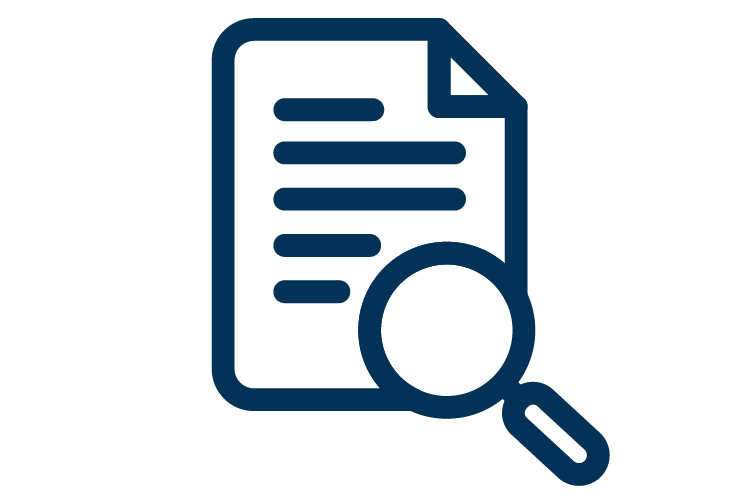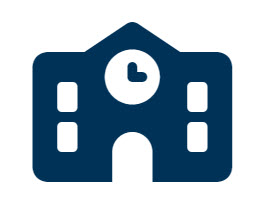Money Smart Users Making a Difference: Four Organizations Recognized for How They Use the FDIC’s Financial Education Curriculum for Adults
We selected these members’ stories to illustrate the many ways Alliance members are improving their communities using Money Smart for Adults. Congratulations to these Money Smart Advance Team (MSAT) members:
- University of Wyoming Extension, awarded the Creative Money Smart for Adults User of the Year.
- First Commonwealth Bank of Indiana, Pennsylvania, recognized as the Impactful Money Smart for Adults Partnership of the Year
- Haven Neighborhood Services, also named the Impactful Money Smart for Adults Partnership of the Year
- JPMorgan Chase Bank, National Association, awarded the Expanding Business Opportunities with Money Smart for Adults.
We hope that reading these stories will give you ideas and inspiration to foster new collaborations in your community. Want help from the FDIC on getting started? Or, can you help others by sharing the ways you use Money Smart? Please contact us at communityaffairs@fdic.gov or contact Section Chief Luke Reynolds at (202) 898-7164.
University of Wyoming Extension: Creative Money Smart for Adults User of the Year
A Money Smart Advance Team member with an interesting and/or unusual way of using the new curriculum.
Programs that teach and reinforce skill building and offer one-on-one support can benefit struggling families. However, resources to provide financial management support to the audiences that could most benefit are often lacking. The University of Wyoming Extension (UWE) Community Development Education team’s response was to create the “Master Money Manager Coach” (M3C) program to empower community organizations across Wyoming to enhance the money management skills of their clientele.
UWE used Money Smart for Adults to train staff from community organizations on how to teach money management, including individual coaching. The M3C program supports social service organizations in their efforts to help financially at-risk individuals improve their financial situation. These organizations are often on the front line in handling personal finance troubles. The M3C program was developed during a time when demands on social service agencies in Wyoming were increasing, but their budgets were being cut.
The impact of the program has been tremendous, according to Cole Ehmke, a UW Extension Specialist. “As a result of participating in the M3C training program, community organizers increased their ability and confidence in teaching money management and coaching individuals toward life change,” he said.
The M3C program was offered across Wyoming in the counties of Teton, Laramie, Campbell and Natrona. As a result, 33 social service organizations and 51 people from five counties are ready and equipped to assist clients who need help managing money.
Comments from attendees showed a high level of enthusiasm and confidence in their ability to train or coach. Some said the money management curriculum would be very useful in their consultations with their clients – and even in their own lives. Others emphasized the value of the coaching component. Specific comments included:
- The program has given me tools to work with clients. I like being a coach more than a teacher.
- [I have] much more confidence because the tools are straightforward and the coaching training and materials were good.
- I feel more confident now in approaching my clients about tackling their financial woes. Before this class, I had no desire to work on issues surrounding money.
Following the training in December 2018, Charlie Jackson, a Housing Counselor at Wyoming Housing Network in Casper, said, “I wanted to let you know that I presented Module 12: Making Housing Decisions to a small group yesterday and it went very well. It was fantastic to have the information you provided to use as a guide. The group responded positively and the participation was surprisingly higher than I had anticipated. I thought you should know how much I appreciated this experience.”
Ehmke also noted that community-based groups “are excellent partners– they are well connected to community needs and are highly receptive to supporting resources, like Money Smart. We’ve found that engaging directly with them to get a sense of their needs, then providing a well-planned, hands-on training (that isn’t too long) increases their interest. Many nonprofits found a significant side benefit of our class was having a forum to network with like-minded agencies. In Casper, for instance, a new Bank On program is moving forward.”
Juliet Daniels, a UW Extension Educator in Cheyenne, said, “By increasing the capacity of social service organizations to assist financially at-risk clients with money management, we are exponentially increasing the network of organizations and individuals available and willing to help individuals and families.”
First Commonwealth Bank of Indiana, Pennsylvania: Impactful Money Smart for Adults Partnership of the Year
A Money Smart Advance Team member that fostered a new partnership around the use of Money Smart to help low- and moderate-income consumers.
First Commonwealth Bank (FCB) of Indiana, Pennsylvania, learned of an opportunity in early 2019 to support a community reintegration program by helping people learn useful financial strategies to assist with their transition into society. The opportunity came about when Goodwill of Southwestern Pennsylvania in Pittsburgh approached FCB to provide financial education for participants in its Community Reintegration program. This program provides nonviolent offenders the opportunity to serve the rest of their sentence in a community setting, instead of jail. Program participants can resume their careers and return to the workforce while getting help reintegrating into the community.
To enable the bank’s financial education team to present information with little advance preparation, FCB planned four financial education sessions using Money Smart for Adults:
- The Benefits of Banking, Module 2: You Can Bank on It;
- Budgeting and Savings Goals, Module 3: Your Income and Expenses, Module 4: Your Spending and Savings Plan, and Module 5: Your Savings;
- Credit Reports and Scores, Module 6: Credit Report and Scores; and
- Credit Repair, Module 8: Managing Debt.
“The Money Smart for Adults modules are divided into clear sections that make it easy for us to meet the educational objectives of each 60-minute session with participants,” said Anna Frank, FCB’s Financial Education Program Coordinator. “We focus on the Apply It activities,” she said, referring to the tools in the curriculum designed to help participants apply what they have learned to their own lives. “The participants are actively working on reestablishing banking relationships and credit, so they appreciate the opportunity to apply what they are learning to their real-life situations.”
Frank added that My First Asset, one of five optional introductory activities found in the Guide to Presenting Money Smart for Adults, was well received by participants. “It was an opportunity for them to share a personal memory that is very positive and also illustrated what is important to them. It was key to the tone of the class to start with an encouraging experience to illustrate that thinking and talking about personal finance does not have to be negative, boring or overwhelming.”
As of December 2019, FCB has taught 22 sessions to more than 220 participants. Feedback on the program has been positive. “Goodwill is pleased that program participants are getting high-quality, vetted, unbiased materials created by the FDIC, with no additional strain on their staff,” said Mike Olack, Goodwill of Southwestern Pennsylvania’s Director of Community Reintegration.
Participants shared that they particularly appreciated the Participant Guides. Several mentioned that they also shared the materials with their families. At least four participants said they opened a checking account, one opened a savings account, and another participant scheduled a meeting with a banker to discuss his financial plan.
Frank also expanded on how Money Smart for Adults is helping to grow First Commonwealth’s financial education efforts. “Since this program has been so successful, we have replicated it by partnering with the Lawrence County Community Action Program in New Castle, PA. This nonprofit organization works with low-income families, and First Commonwealth has found the Money Smart materials to be a great fit.”
First Commonwealth Bank officials said they will continue using Money Smart for Adults for future financial education opportunities. They also indicated that the ability to use the curriculum to teach many personal finance topics, from a 30-minute overview to multi-week sessions, allows great flexibility for FCB to provide relevant and accurate financial education to participants. Frank added, “First Commonwealth is grateful that the FDIC has provided such a useful tool that helps the bank fulfill its mission of improving the financial health of our neighbors and their businesses.”
Haven Neighborhood Services in Los Angeles County, California: Impactful Money Smart for Adults Partnership of the Year
A Money Smart Advance Team member that fostered a new partnership around the use of Money Smart to help low- and moderate-income consumers.
Haven Neighborhood Services (Haven) began using Money Smart for Adults in 2010 in low- and moderate-income neighborhoods in Los Angeles County, California. Haven now uses the 2018 updated version of Money Smart for Adults to also help incarcerated women and people struggling financially.
Clients are eligible for one-on-one credit counseling and/or financial coaching after completing four modules of the curriculum. “Counselors have found that when clients participate in Money Smart for Adults workshops prior to their one-to-one sessions, the clients are more engaged and ask more questions,” added Erika Toriz, Haven’s Executive Director. “The workshops prepare clients to take control of their personal finances. We want our clients to understand basic finance, how to develop a budget, take control of their credit, and become banked. Most importantly, we want our clients to gain financial knowledge so that they don’t become victims of predatory lenders and can make better financial decisions.”
To show the impact of their work, Toriz pointed to Haven’s workshops at a women’s jail in Los Angeles: “The first thing one woman, Laura, did after her release was call our office and make an appointment to see a credit counselor. Laura told us that our workshop woke her up and gave her hope, and that for the first time, she feels that her life has meaning. She wants to fix her credit by paying down her debt, obtain a bank account and turn her life around.”
Toriz also pointed to another example that came from a series of four workshops at the West Los Angeles Veterans Affairs Office: “One of our many homeless veteran participants continued with his credit counseling sessions and pre-purchase counseling. He said that attending the workshop opened his eyes to reality, so he decided to focus all of his energy toward achieving his goal of home ownership with the help of his credit and pre-purchase counselors. He has now purchased a house!”
Haven partners with banks to help deliver Money Smart for Adults workshops. “We have found that a bank employee’s participation in the training also brings awareness to the banker of how vulnerable low- and moderate-income communities are,” said Toriz. “Haven’s staff bring the day-to-day experience they have from working with their clients one on one. It really helps in our Money Smart workshops to have the bankers bring that experience so people leave the workshop trusting the bankers more. Haven staff always wants to maximize the time that participants take out of their busy lives to attend these outstanding workshops. Haven’s staff is also very culturally sensitive to their participants needs.”
Added Maria Sevilla, an Assistant Branch Operations Manager at Pacific Western Bank, “Working with Haven Neighborhood Services opened up my eyes about the important role that financial education plays in the well-being and quality of life for residents of low and moderate-income communities. Participants arrive at the workshop with very little knowledge about credit. When they leave, they are empowered realizing that their financial past does not determine their financial future.”
Another collaborator, Jose Figueroa, Associate Vice President and Community Partnerships Manager at Broadway Federal Bank in Los Angeles, said, “Collaborating with Haven Neighborhood Services and teaching Money Smart has been a seamless experience because of the level of engagement that Haven has had with its participants. We’ve learned from each other.”
As of September 2019, through collaborative efforts that also involve hospitals, nonprofits, city agencies and others, Haven has provided Money Smart workshops to more than 5,520 clients who have participated and received a certificate upon completion of at least four out of five workshops. “The feedback we hear most in our workshops is, ‘I wish I would have taken this class before,’” said Toriz. “Participants are shocked when they find out that you don’t have to be rich to learn how to manage your money. It’s an eye opener for clients. People are more aware of their credit and credit scores, they are conscious of spending their money wisely, they develop a sense of financial knowledge, and they feel that they are part of society.”
JP Morgan Chase Bank, National Association: Expanding Business Opportunities with Money Smart for Adults
A Money Smart Advance Team member that expanded its service area or bank customer base/focus population as part of their use of Money Smart.
JP Morgan Chase Bank, National Association, (Chase) has been using the Money Smart product family for several years to facilitate community financial education workshops. “The updated Money Smart for Adults curriculum was the perfect fit for Chase employees to use to volunteer in the community,” said Denise Steele, Community Reinvestment and Community Partnerships Officer, Chase. “The updated curriculum assisted in increasing their skill-based volunteer efforts in the community.”
For example, Samaritas House Heartline in Detroit, Michigan, provides shelter, food and other assistance to women who are homeless or leaving the correctional system. In 2018, this nonprofit lost its partner and was looking for another financial institution to provide financial education to residents. Chase identified the opportunity and began partnering with Samaritas House Heartline in early 2019. Chase staff now provide monthly financial education workshops using the updated Money Smart for Adults curriculum. “The collaboration with Samaritas was a perfect match,” said Steele.
Two of the most popular modules among participants are Module 4: Your Spending and Saving Plan, and Module 6: Credit Reports and Scores. “Having access to Money Smart for Adults was key to shifting behaviors around one’s financial health and providing tools to make well-informed financial decisions,” said Steele. “And Chase employees find the [updated] curriculum to be easy to navigate. For example, the Instructor’s Guide offers everything a trainer needs, including what to say when teaching.”
Steel credits the two Money Smart for Adults Train-the-Trainer webinars the bank conducted for over 200 employees nationally, using FDIC trainers, as key aspects of preparing bank staff to engage with Samaritas House. The opportunity to be trained by FDIC staff on how to use Money Smart is a popular benefit of the Alliance program.
To date, more than 350 women have participated in the program, and Chase is continuing the partnership in 2020. Steele adds, “Financial counseling is important and our goal is to continue to support the community and provide resources needed to help people manage their credit, finances and make the best financial decisions. We have a shared vision of strengthening the communities in which we live, and using Money Smart is key to helping our community members. Our goal is to create financially inclusive communities by eliminating barriers and creating opportunities for financial resilience across all spectrums. As a result of providing financial education, it will not only be impactful but also create business opportunities for the bank.”
See more success stories from Money Smart News.
For help or information on how to use the Money Smart curriculum, contact communityaffairs@fdic.gov.
Current and Previous Issues:
Additional Links

Money Smart Alliance
Learn, collaborate and grow with FDIC’s recognized organizations that use Money Smart.
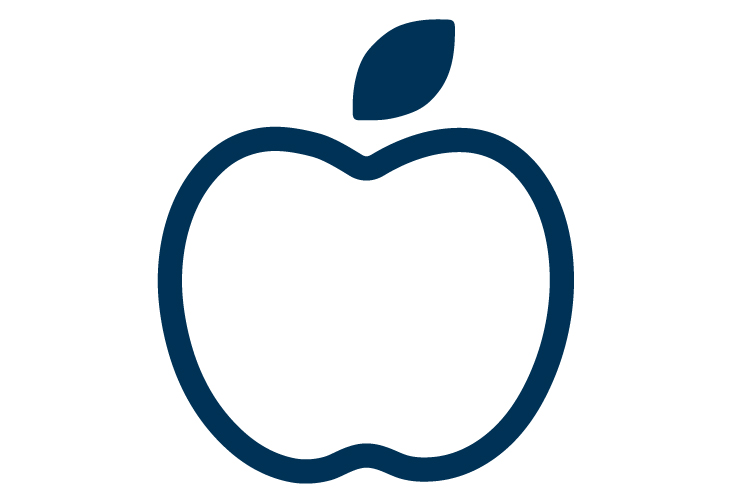
Teacher Online Resource Center
Here you will find tools to help you teach financial education including lesson plans, videos, and other resources
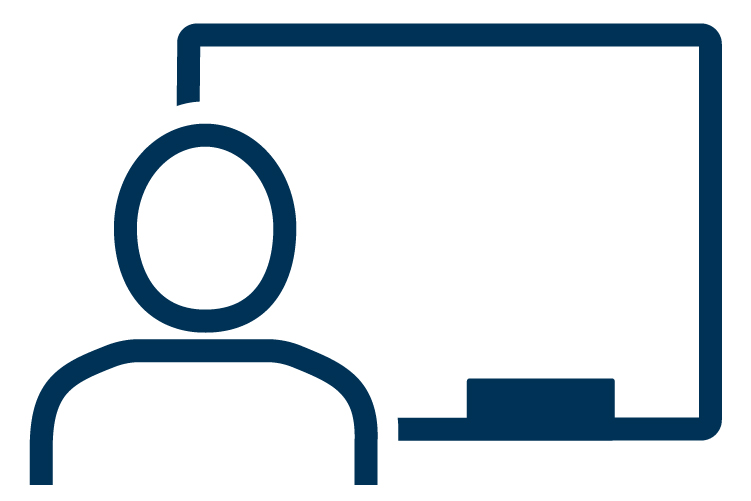
Train-the-Trainer Program
Provides guidance with videos, workshops, and webinars
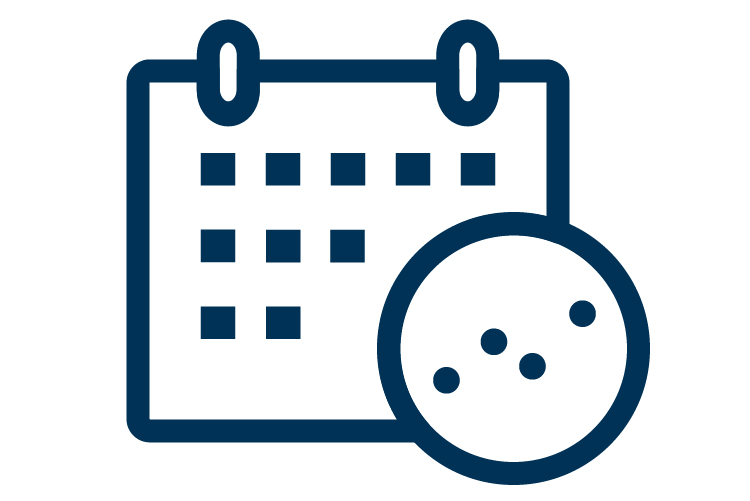
Training & Events
Announcements of upcoming Money Smart events for Train-the-Trainer and Small Business events

